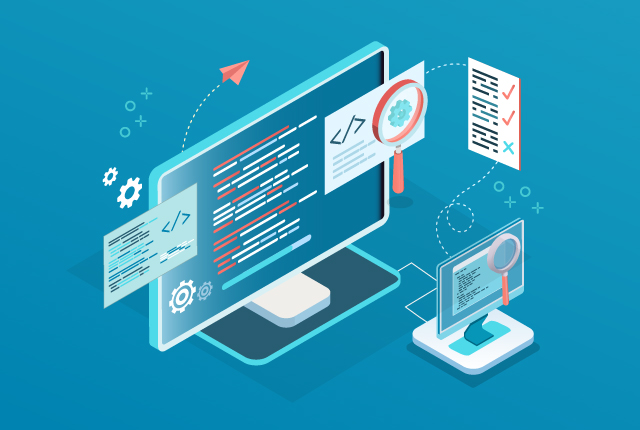Partnering with top offshore testing companies ensures efficient QA processes and cost-effective solutions. Discover the leading offshore testing providers and how they help deliver high-quality software while meeting timelines and optimizing resources.
QASource Blog
In our blog, we take a deep dive into the latest QA strategies, methodologies, and industry best practices driving the world of quality assurance. Follow our blog to get new ideas as to how to effectively deliver high-quality, bug-free software products, websites, and applications, while keeping costs low.

Understand how complete software systems are validated through system testing to ensure functional and non-functional requirements are met. This guide simplifies the key concepts, techniques, and benefits essential for quality assurance from the ground up.
Utilizing AI testing in SaaS enables consistent software quality without increasing the QA team size. AI-driven automation enhances test coverage, detects defects earlier, and reduces manual effort, supporting faster and more scalable product releases.
Neglecting to align AI testing strategies with real-world scenarios is the top mistake made during implementation. This blog explores why it happens, its impact on product quality, and how QASource helps create robust AI test plans tailored for practical results.
Justifying ROI means measuring efficiency gains, defect reduction, and accelerated release cycles against implementation costs. QASource helps to make data-driven decisions, showcasing how strategic AI investments lead to productivity and quality improvement.
Ensure your product stays bug-free with manual regression testing. Catch issues early by rechecking core features after every update. QASource’s expert QA team ensures consistent quality and smooth performance, no surprises, just reliable results.
Preparing for AI integration requires more than powerful algorithms; it demands a solid foundation. AI readiness hinges on aligning infrastructure with strategic goals. QASource outlines nine critical factors to evaluate before launching AI initiatives.
A clear roadmap enables structured AI adoption in software testing, enhancing accuracy, speed, and coverage. Strategic integration of AI aligns test automation with evolving project needs, allowing QASource to drive innovation and deliver quality at scale.
Explore the top 10 cyber security testing companies in USA, featuring industry leaders like QASource, leveraging AI to protect your business from cyber threats. With a focus on proactive threat detection, this blog helps you find the right partner to safeguard your digital assets.
Written by QA Experts
QASource Blog, for executives and engineers, shares QA strategies, methodologies, and new ideas to inform and help effectively deliver quality products, websites and applications.
Categories
Authors
Our bloggers are the test management experts at QASource. They are executives, QA managers, team leads, and testing practitioners. Their combined experience exceeds 100 years and they know how to optimize QA efforts in a variety of industries, domains, tools, and technologies.
![Top 10 Offshore Testing Companies in the USA [2025 List] Top 10 Offshore Testing Companies in the USA [2025 List]](https://blog.qasource.com/hs-fs/hubfs/top-10-offshore-testing-companies-in-usa.jpg?width=640&height=430&name=top-10-offshore-testing-companies-in-usa.jpg)







